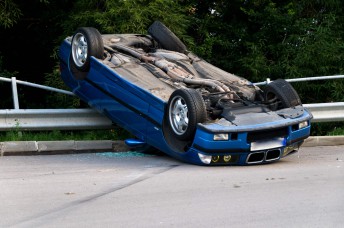
So you just got into a car accident and now your car is banged up pretty good. But you wonder: Is my car considered to be “totaled”?
Each year, millions of vehicles are considered “totaled” by auto insurance companies because they are not worth the cost of repairing them. Regardless, if your car was damaged due to an accident, a thief drove it into a tree, or during a flood, it can still be considered totaled.
Usually, your car will be deemed totaled if it costs more to repair it than what its actual cash value (ACV) is. However, even if repairing it would cost less than its ACV, sometimes it’s not practical to fix it. For instance, if your car is worth $5,000 and repairing it would cost you $,4000, the insurer could still be considered ‘totaled’ even though the repair costs less than the car’s value.
Your auto damage adjuster will let you know if your car is totaled. Once they provide you with this information, they will ask you to:
- Take your personal items and license plates from your car
- Give them a key or have you leave it in the car
- Provide them with any extra keys
- Contact your leasing or financing company (if you have one) and give them permission to talk with the adjuster about the claim
- Give them the contact information and account number for your leasing or financing company
- Fill out and return some documents and forms
How the Value of your Car is Decided
To determine the ACV of your car at the time of the accident, your insurer will usually weigh in several factors such as the car’s condition, age, resale value, mileage and similar vehicles’ selling price in the area.
Loan Payments
You might be wondering if you still have to pay off the loan on your car (if you have one) if it’s totaled. The insurer will cut you a check for your car’s ACV when it comes time to pay on the claim. In some cases, they will deduct any deductible depending on policy provisions. However, if you have a loan out on the car, the insurer will usually reimburse the lender first and then release the remaining money to you.
If you happen to owe more on the loan than what you received in payment, you will be responsible for the remaining car loan balance. But, you might want to check with the insurance company to see if you have what is known as gap coverage on your policy. If you do, this will kick in and pay the ‘gap’ between what you owe and what your car is worth.
The stress and cost of repairing a totaled car can be upsetting. By knowing you have adequate auto, whether that’s personal auto insurance or commercial auto insurance, and how insurers handle totaled vehicles and the state laws around them, it will make things a bit simpler to deal with.